
Complete Fixes To Solve Apple iPhone 13 Pro Max Randomly Asking for Apple ID Password | Dr.fone

Complete Fixes To Solve Apple iPhone 13 Pro Max Randomly Asking for Apple ID Password
Apple ID is a crucial part of the Apple ecosystem that enables users to access a wide range of services and applications. It is a unique identifier that links all Apple devices, services, and applications together.
However, sometimes iPhone users may encounter an annoying issue where their iPhone randomly asks for an Apple ID password without any apparent reason. This problem can be frustrating and disruptive! It can interrupt your workflow and prevent you from using your phone normally.
Fortunately, we have comprehensive solutions to help you resolve this persistent issue once and for all. Let’s dive in and return your device to its happy, non-nagging self!
Part 1: Common Causes for Random Apple ID Verification Pop Up
The random Apple ID verification pop-up can be caused by a range of factors, from simple settings misconfigurations to more complex account-related issues. So it’s important to identify the root cause to find the appropriate solution that addresses the underlying issue.
Take a closer look at these common reasons why your Apple iPhone 13 Pro Max may be randomly asking for your Apple ID password:
- iOS Software Update****:
One of the most frequent causes of the Apple ID password prompts is when your Apple iPhone 13 Pro Max has undergone a software update. The update may require you to re-verify your Apple ID credentials to ensure security and privacy.
- iCloud Account Settings****:
If the settings are not in sync with your Apple ID credentials or if there are inconsistencies, it can trigger repeated password prompts.
- App Store/iTunes Purchase****:
If there was an issue when you purchased or downloaded something, your Apple iPhone 13 Pro Max might prompt you to verify your Apple ID to complete the purchase.
- iCloud Keychain****:
The iCloud Keychain is a feature that stores your passwords and other sensitive information across your Apple devices. If there are inconsistencies or conflicts with the iCloud Keychain data, it may prompt you to verify your Apple ID password.
- Network Connectivity****:
Sometimes, network connectivity issues can cause the Apple ID password prompts to appear repeatedly. If your Apple iPhone 13 Pro Max is struggling to establish a stable internet connection, it may trigger verification prompts.
These are some of the common causes that can trigger the random Apple ID verification pop-up on your Apple iPhone 13 Pro Max. Now, we’ll delve into the solutions to help you resolve this matter.
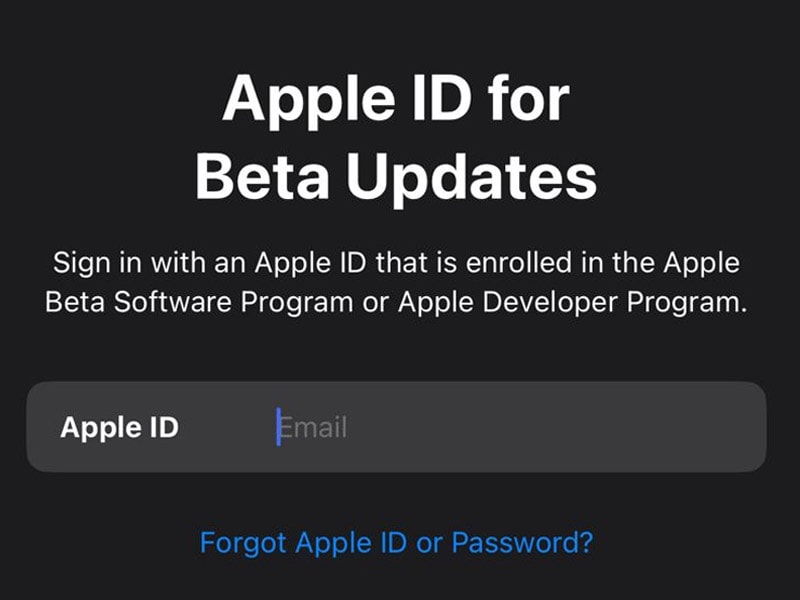
Part 2: Solutions To Stop iPhone Randomly Asking for Apple ID Password
After we’ve concluded the “Why does my iPhone keep asking for my apple ID” question, let’s explore solutions to help you end this annoyance. Here are eight methods that you can try to stop your Apple iPhone 13 Pro Max from repeatedly asking for your Apple ID password:
Method 1: Update iOS.
Ensure that your Apple iPhone 13 Pro Max is operating on the most up-to-date iOS version. Software updates usually incorporate bug fixes and security improvements that can address the problem effectively.
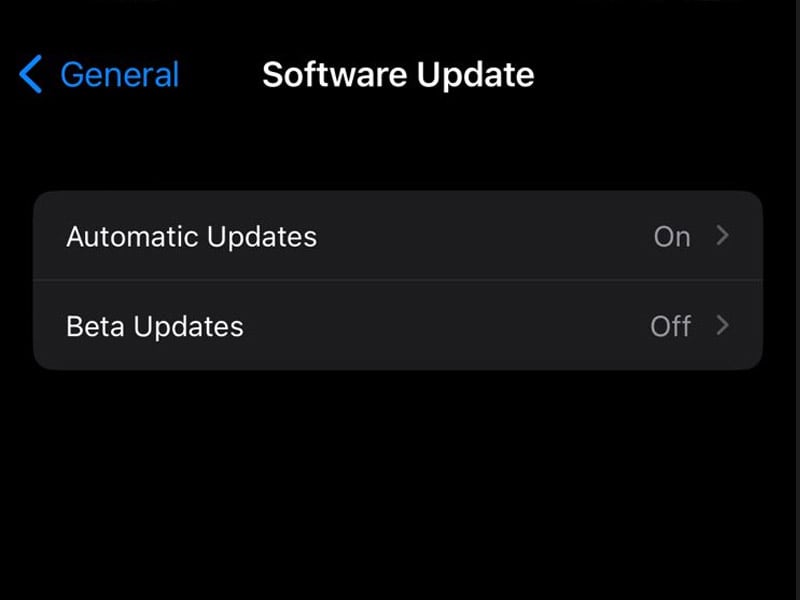
Method 2: Sign Out and Sign In to Apple ID.
Sign out and then sign back in your Apple ID. This method can refresh the credentials and resolve any authentication issues.
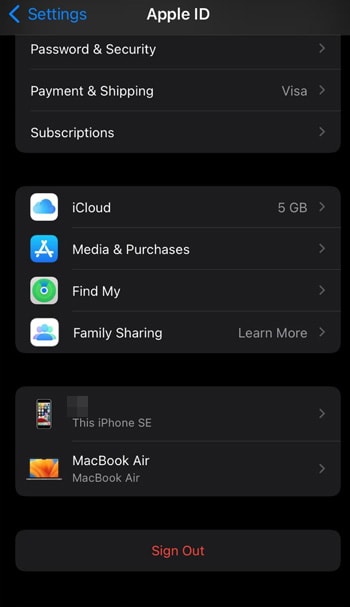
Method 3: Remove Apple ID with Wondershare Dr. Fone
If you forget your Apple ID and cannot access your device, Wondershare Dr. Fone’s Screen Unlock tool can help. This powerful tool lets you remove your Apple ID from your device, even if Find My Service is enabled.
Before we begin, it’s crucial to remember that this process will erase all data from the Apple iPhone 13 Pro Max device. Now, follow the steps below if your iPhone keeps asking for an Apple ID password:
- Step 1: Launch the Dr. Fone Screen Unlock
Open Wondershare Dr. Fone on your computer and navigate to the Toolbox > Screen Unlock to activate the feature.
- Step 2: Choose Remove Apple ID
In the next window, select the option to Remove Apple ID to initiate the process of removing your Apple ID.
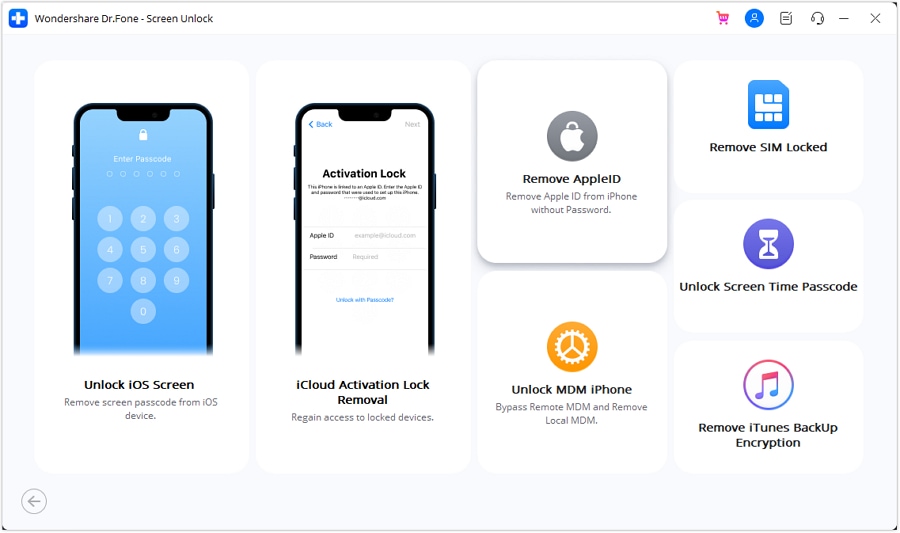
- Step 3: Connect Your Device
Link up your iOS device to the computer using a USB cable. The software will display the connectivity status on the next screen. Click the Unlock Now button to proceed.
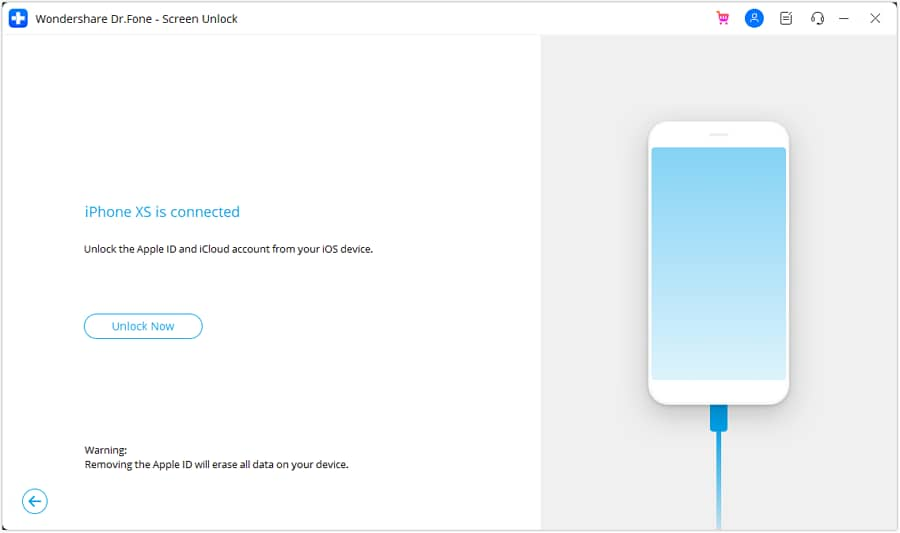
- Step 4: Confirm Screen Lock and Two-Factor Authentication
The software will ask if your device has a screen lock. Confirm whether you have a screen lock enabled on your device by clicking Yes. Then, it will also confirm if your device has Two-Factor Authentication enabled.
- Step 5: Put Device in Recovery Mode
The program will display on-screen guidelines to help you put your device in Recovery Mode. Follow the instructions that match your iOS model. If it doesn’t work, you can also try DFU Mode by clicking Try DFU Mode on the bottom-left of the screen. Then, follow the instructions.
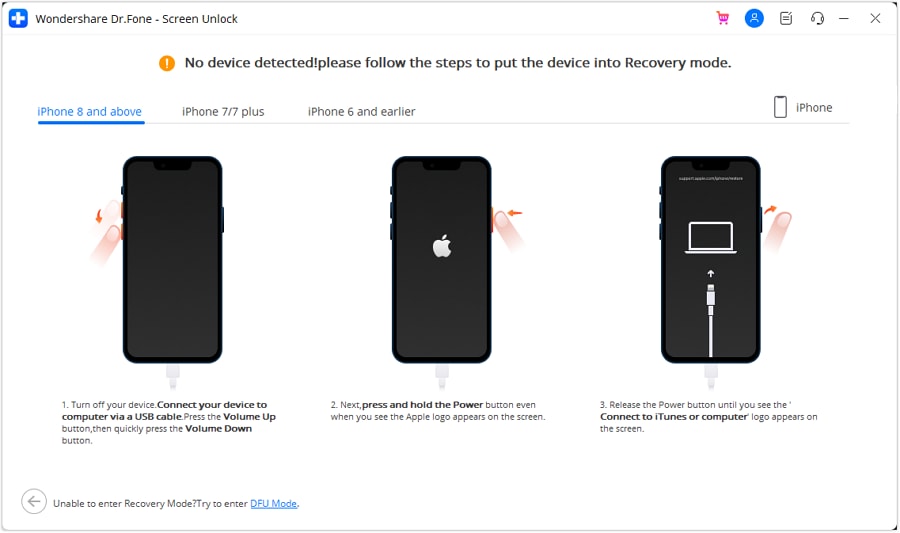
- Step 6: Recognize the Apple iPhone 13 Pro Max device Model and Select System Version
Once your device is in Recovery Mode, you can see its details on the next screen. Then, select the System Version and Start to proceed. You can manually set the details if there are any differences in recognition.
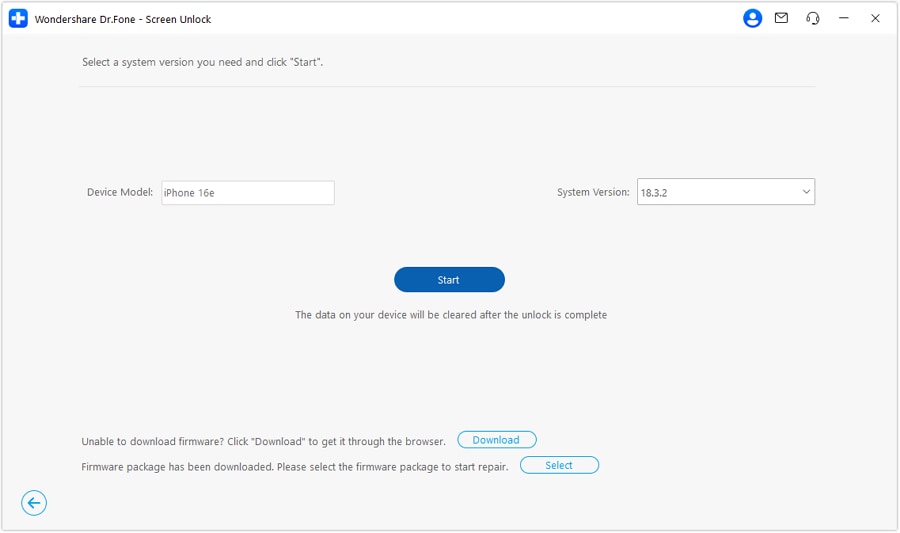
- Step 7: Download iOS Firmware
The software will start downloading the corresponding iOS firmware. If the firmware download is slow, you can copy the link and download the iOS firmware.
- Step 8: Confirm the Prompt to Unlock
Once you download the firmware, it will be verified by the software. Click Unlock Now until a prompt window appears. It will ask you to enter a code to continue. Enter the code and click Unlock to start the process.
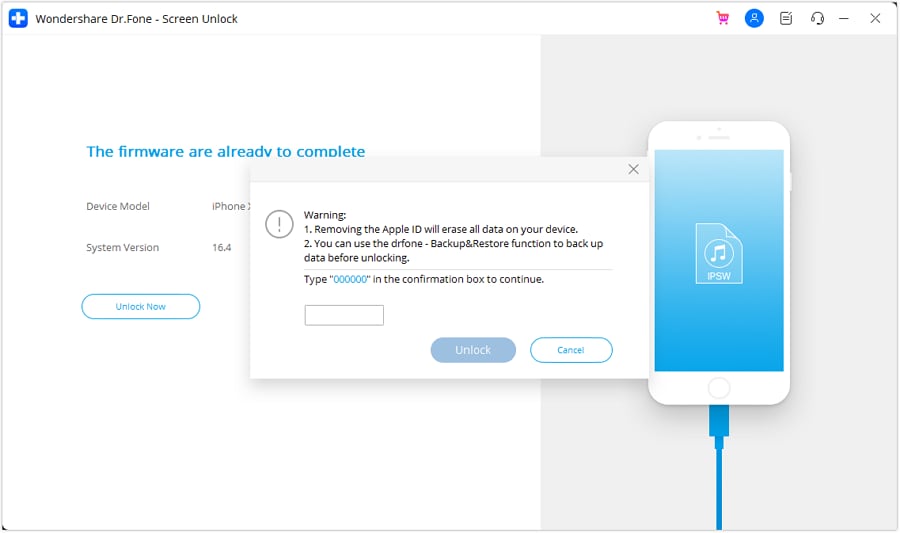
- Step 9: Monitor Apple ID Removal Progress
Keep your device connected and avoid any disconnections. Once the Apple ID is unlocked, the software will prompt the completion. Click Done to conclude the process. If the Apple ID is not unlocked, you can click Try Again.
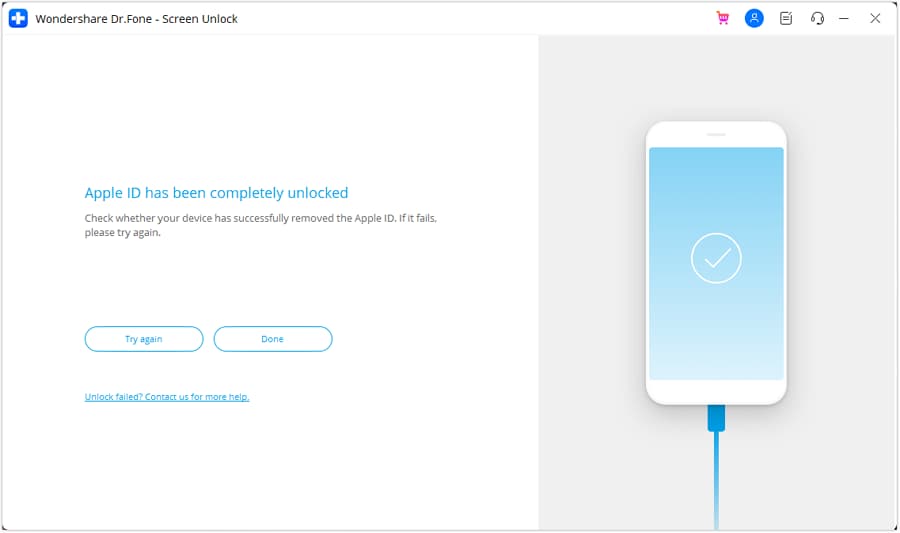
Method 4: Reset iCloud Account SettingsResetting your iCloud account settings can help clear any inconsistencies or conflicts that may be triggering the password prompts. Open Settings, and navigate to General > Transfer or Reset Phone > Reset.
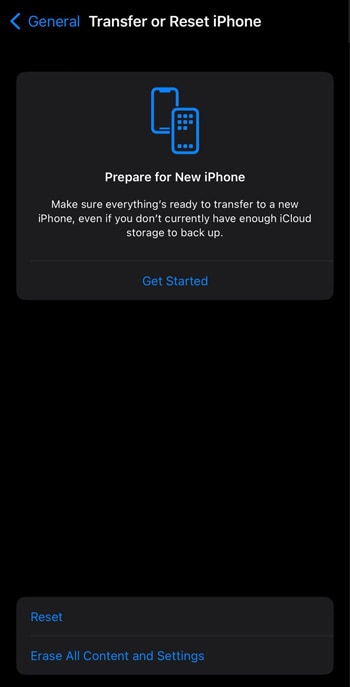
Method 5: Check App Store/iTunes Purchase
Verify and complete any pending app purchases or downloads from the App Store or iTunes. If there was an issue with a previous transaction, resolving it can stop the password prompts.
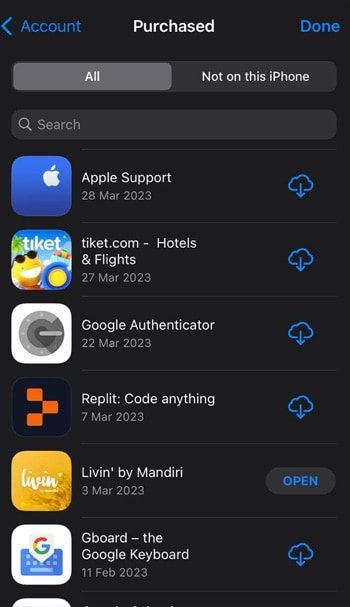
Method 6: Disable iCloud Keychain
Turning off iCloud Keychain and then turning it back on can help refresh the data and resolve any syncing issues. Go to Settings > [Your Name] > iCloud > Keychain > Toggle off and on.
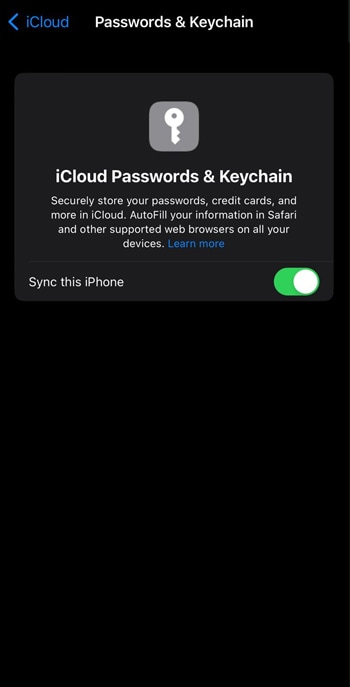
Method 7: Check Network Connectivity
Make sure that your Apple iPhone 13 Pro Max has a reliable internet connection. Weak or unstable networks can trigger password prompts. Try to switch between different Wi-Fi networks or use cellular data.
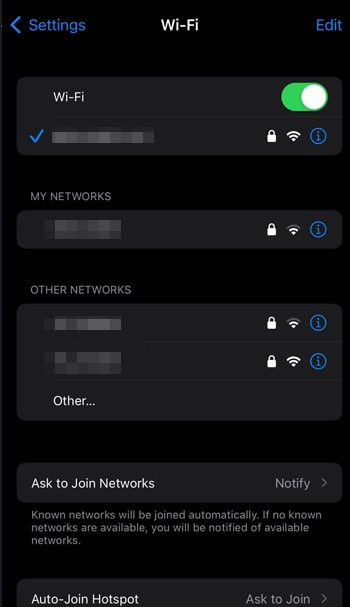
Method 8: Contact Apple Support
If none of the above methods work, contacting Apple Support can be a viable option. They can provide further assistance and guidance in resolving the issue.
These are some of the methods that can help you stop your Apple iPhone 13 Pro Max from randomly asking for your Apple ID password. Don’t forget to always back up your data before changing your Apple iPhone 13 Pro Max settings.
If the issue persists, it’s recommended to visit an authorized Apple service center.
Bonus Part: How To Get Your Apple ID Password Back if You Forget It
It’s not uncommon for people to forget their Apple ID password at times, especially with the ever-increasing number of online accounts we manage. But fret not! There are reliable password manager tools available, such as Dr.Fone Password Manager. It can help you handle this issue seamlessly and regain access to your Apple ID.
Let’s explore some of the Dr.Fone Password Manager tool:
- Password Recovery:
Allows you to recover your Apple ID password quickly and easily, even if you’ve forgotten it. With its intuitive interface and step-by-step guidance, you can reset your Apple ID password hassle-free.
- Data Security:
It prioritizes data security, ensuring that your Apple ID password and other credentials are securely stored and encrypted. It provides a safe and reliable way to manage passwords without compromising privacy.
- iCloud Backup and Restore:
It enables you to create a backup of your iCloud data, including your Apple ID password, and restore it whenever needed. This feature can be handy if you need to retrieve your password from a previous backup.
- Cross-Platform Compatibility:
It is compatible with various platforms, including iOS, Android, Windows, and Mac, making it a versatile password management solution that you can use across different devices.
If you forget your Apple ID password, Wondershare Dr.Fone can be a valuable tool to help you retrieve it and manage your passwords securely. Its features make it a comprehensive solution for handling password-related issues.
It’s essential to use secure and unique passwords for your accounts. Then, consider using a reliable password manager like Dr.Fone Password Manager to simplify your password management process.
A Comprehensive Guide to Apple iPhone 13 Pro Max Blacklist Removal: Tips and Tools
Have you ever wondered what happens when your beloved iPhone gets blacklisted? It’s like a digital timeout and can be a real headache. Imagine not being able to use your Apple iPhone 13 Pro Max fully because it’s on a blacklist. That means no calls, texts, or internet – not exactly the Apple iPhone 13 Pro Max experience you signed up for, right?
But don’t fret! This article is here to demystify the Apple iPhone 13 Pro Max blacklist and show you how to fix it. It will take you on a journey of iPhone blacklist removal. By the end, you’ll be able to bring your Apple iPhone 13 Pro Max back to life.
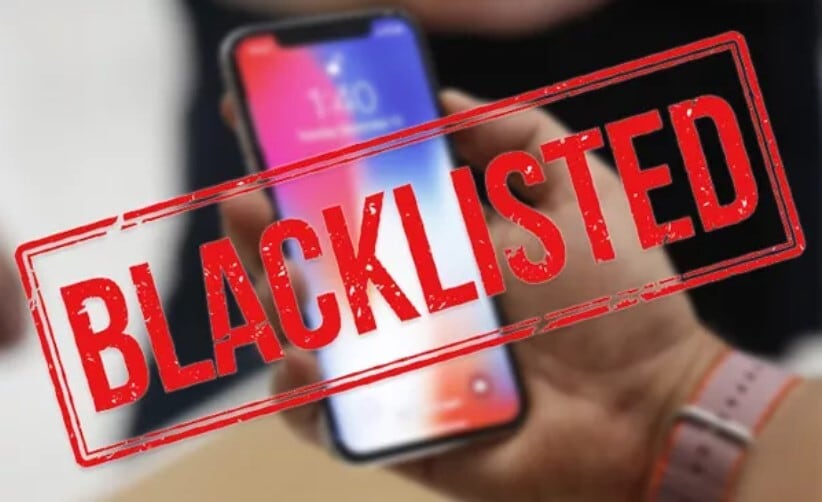
Part 1. Decoding the Apple iPhone 13 Pro Max Blacklist: What You Need To
You might have heard the term “blacklisted iPhone” before, but what does it mean? Well, it’s like your Apple iPhone 13 Pro Max is in a timeout and can’t play with the other phones. Let’s break it down in simple terms.
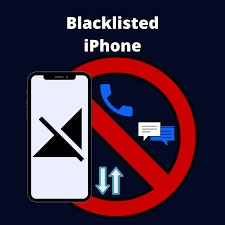
What Is a Blacklisted iPhone?
When an iPhone is blacklisted, it’s been labeled as “not-so-friendly” in the digital world. It’s like when you’re not allowed into an establishment because you broke the rules. In this case, the Apple iPhone 13 Pro Max has done something that makes it unwelcome on specific networks.
Why Does an iPhone Get Blacklisted?
There are a few reasons why an iPhone might end up on this digital naughty list:
- **Reported as Lost or Stolen.**Imagine if someone reported their iPhone as lost or stolen. If someone else tries to use that phone, it could be blacklisted. That’s because protecting the original owner’s data and privacy is essential.
- **Unpaid Bills.**Sometimes, an iPhone gets blacklisted because the person who had it didn’t pay their bills. Not paying your phone bill can have consequences.
What Happens When Your Apple iPhone 13 Pro Max Is Blacklisted?
Now, here’s where things get tricky. When your Apple iPhone 13 Pro Max is blacklisted, it won’t work like it should. Here’s what you might experience:
- **No Calls or Texts.**You won’t be able to make or receive calls and texts. It’s like your Apple iPhone 13 Pro Max is suddenly mute.
- **No Internet.**Say goodbye to surfing the web or using apps that need an internet connection. Your Apple iPhone 13 Pro Max will be like a disconnected island.
- **Lower Resale Value.**If you ever decide to sell your Apple iPhone 13 Pro Max, its value will drop if it’s blacklisted. People are wary of buying blacklisted phones because they come with limitations.
So, in a nutshell, a blacklisted iPhone is like a digital pariah, shunned from regular phone activities. But the good news is, you don’t have to stay in timeout forever. In the next part, this guide will show you how to get your Apple iPhone 13 Pro Max back in action with some easy-to-follow iPhone blacklist removal steps.
Part 2. How To Remove and Unlock an iPhone Blacklist for Free
Now that you know what it means for an Apple iPhone 13 Pro Max to be blacklisted and the troubles it can bring, let’s talk about how to set your Apple iPhone 13 Pro Max free. The good news is there’s a way to do this for free! Yes, you read that right. This section will walk you through the steps.
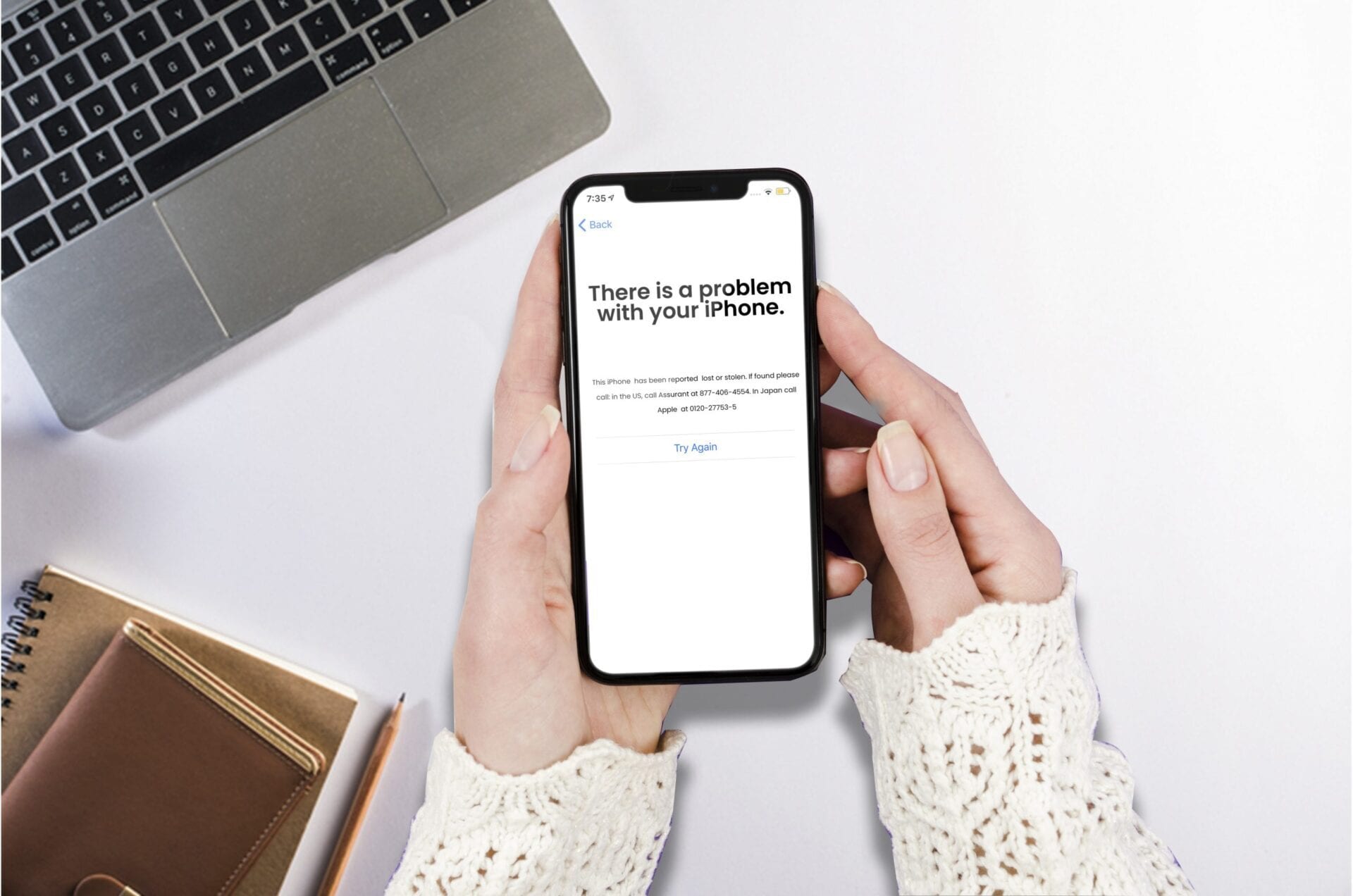
What Is iPhone Blacklisted Removal?
Going through a blacklist removal service for your Apple iPhone 13 Pro Max is like giving your device a second chance. It’s taking your Apple iPhone 13 Pro Max off the “naughty list” and making it work like it should again. And the best part? You can do it without spending a dime.
Guide to Free iPhone Blacklist Removal
The iPhone blacklist removal method is relatively easy. Here’s how you can do it:
Option 1: Contact the Original Owner
One way to remove the blacklist status from your Apple iPhone 13 Pro Max is by contacting the person who originally owned it. Talking to the previous owner can be a game-changer if your Apple iPhone 13 Pro Max ended up on the blacklist because it was reported as lost or stolen. They can help you sort things out with the carrier and get the blacklist status lifted.
Option 2: Contact Your Carrier
Your next option is to contact your carrier for an iPhone blacklist removal service. The company provides your phone service, so they have the authority to remove the blacklist status from your Apple iPhone 13 Pro Max. Be prepared to explain your situation; they will guide you through the process. That means you can get in touch with AT&T, Verizon, Sprint, or T-Mobile.
If your carrier blacklisted the phone in error, you can request it be removed from the list for free. You must repay the bill if the carrier blacklisted the Apple iPhone 13 Pro Max device due to past-due account payments. Unfortunately, the carrier cannot remove or unlock the phone if the previous owner blacklisted the smartphone by reporting it as lost or stolen.
Both of these methods are free and can work like a charm. However, they might take some time and effort on your part. But if you’re patient and persistent, you could end up with a fully functional iPhone again. Remember, staying polite and patient when dealing with the original owner or the carrier is critical.
Part 3: Preventive Measures To Avoid Getting an iPhone Blacklisted
Now that you’ve learned how to rescue a blacklisted iPhone let’s talk about how to keep it out of trouble in the first place. Prevention is always better than a cure, right? Here are some easy steps to make sure your Apple iPhone 13 Pro Max stays in the clear.
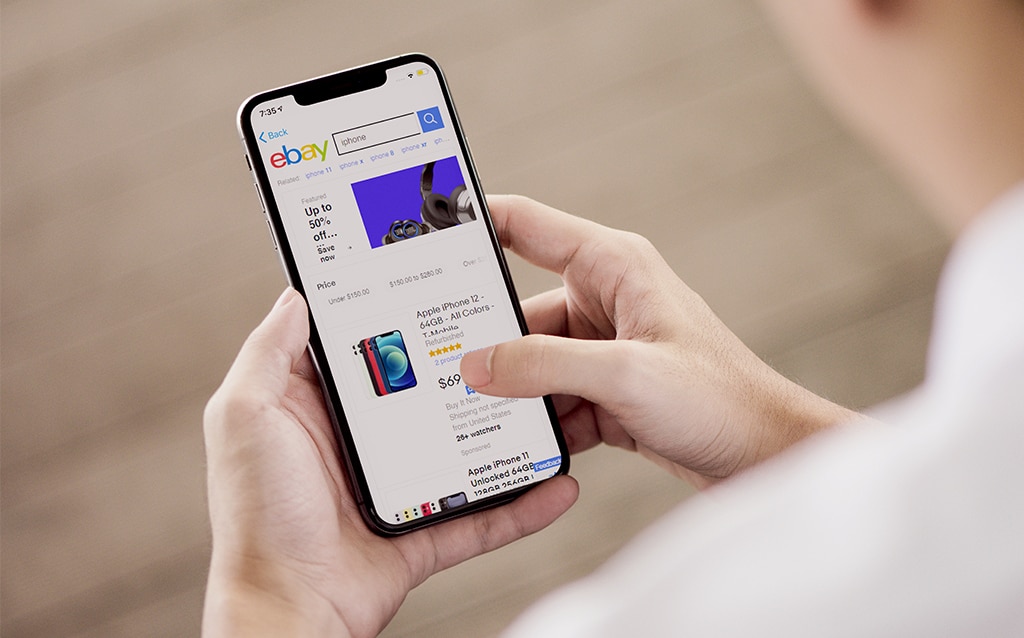
Check the iPhone’s History Before Buying
Before you hand over your hard-earned money, check the iPhone’s background. Make sure it’s not reported as lost or stolen. You can do this by asking the seller for the phone’s IMEI or serial number and checking it online or with your carrier. A clean history is a green light to go ahead with the purchase.
Keep Your Apple iPhone 13 Pro Max Secure
Just like you lock your front door, secure your Apple iPhone 13 Pro Max. Use a strong passcode, Face ID, or Touch ID to protect your phone from unauthorized access. This simple step can prevent it from being misused and reported as stolen.
Pay Your Bills on Time
Your iPhone needs its “phone allowance” paid on time, too. Ensure you pay your monthly bills to your carrier. Unpaid invoices can lead to your Apple iPhone 13 Pro Max getting blacklisted.
Be Careful With iCloud
iCloud is like a protective bubble for your Apple iPhone 13 Pro Max’s data. Don’t share your Apple ID and password with just anyone. If someone else has access to your iCloud account and does something shady, it can affect your Apple iPhone 13 Pro Max’s status.
Report a Lost or Stolen iPhone
If your Apple iPhone 13 Pro Max ever goes missing, report it to your carrier and the police immediately. The step will help prevent someone else from using it and getting it blacklisted.
Beware of Scams
Stay vigilant for scams and sketchy deals. If something sounds too good to be true, it probably is. Avoid buying iPhones from unreliable sources or individuals you don’t trust.
By following these simple preventive measures, you can keep your device clear and avoid the hassle of dealing with the whole iPhone blacklist removal process. Remember, a little caution goes a long way.
Part 4: The Blacklist Problem Resolved, but What To Do if I Have a Locked SIM?
So, this article has talked a lot about iPhone blacklist removal, but what about your trusty SIM card? A little chip plays a significant role in keeping you connected. Sometimes, SIM cards encounter issues, too, and they need a helping hand. Enter Wondershare Dr.Fone – Sim Unlock, your go-to solution for all SIM-related issues like SIMs not supported, locked or invalid SIMs , and SIMs without network service.

Key Features
Check out the marvelous features that Dr.Fone – SIM Unlock can do for your Apple iPhone 13 Pro Max:
- **Compatibility Galore.**Fone – SIM Unlock works like a charm with various iPhone models and a wide range of carriers. It’s like a universal remote for your SIM troubles.
- **User Friendly.**You don’t need to be a tech wizard to use it. Dr.Fone – SIM Unlock comes with an easy-to-follow interface. It’s like having a friendly guide right on your screen.
- **Quick and Effective.**The best part? It’s quick and efficient. You won’t wait hours to get your SIM back on track. It’s like a fast pass at an amusement park.
- **Anytime, Anywhere.**Fone – Sim Unlock is available whenever you need it. Whether at home or on the go, you can count on it to rescue your SIM.
Step-by-Step Guide
Now, see how you can easily unlock your Apple iPhone 13 Pro Max’s SIM by following the guide given below:
- Step 1: After downloading and installing the software on your computer, launch Wondershare Dr.Fone. Continue to the Toolbox section, then choose Screen Unlock and click iOS to open the tool in a new window.
- Step 2: Once in the new window, click the Remove SIM Locked function to begin the process.
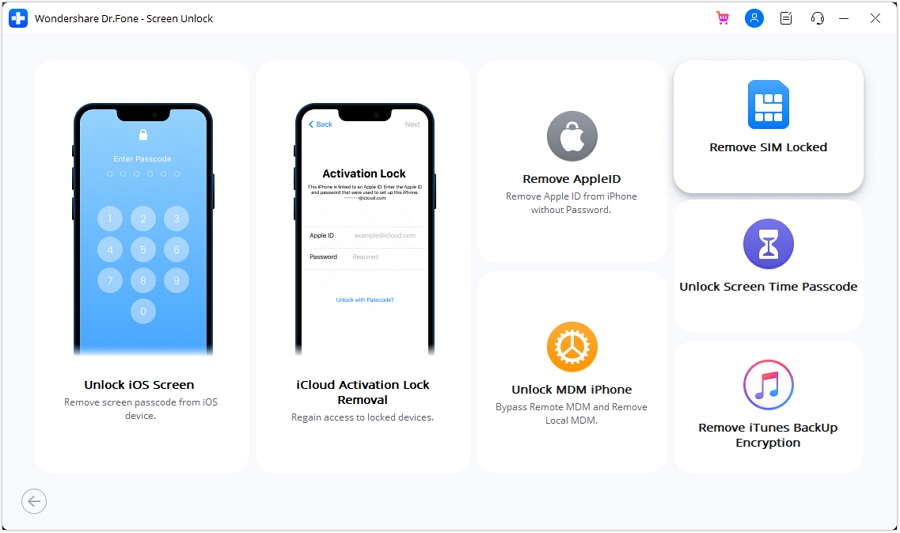
- Step 3: Click Start to begin the process on the next Remove SIM locks page.
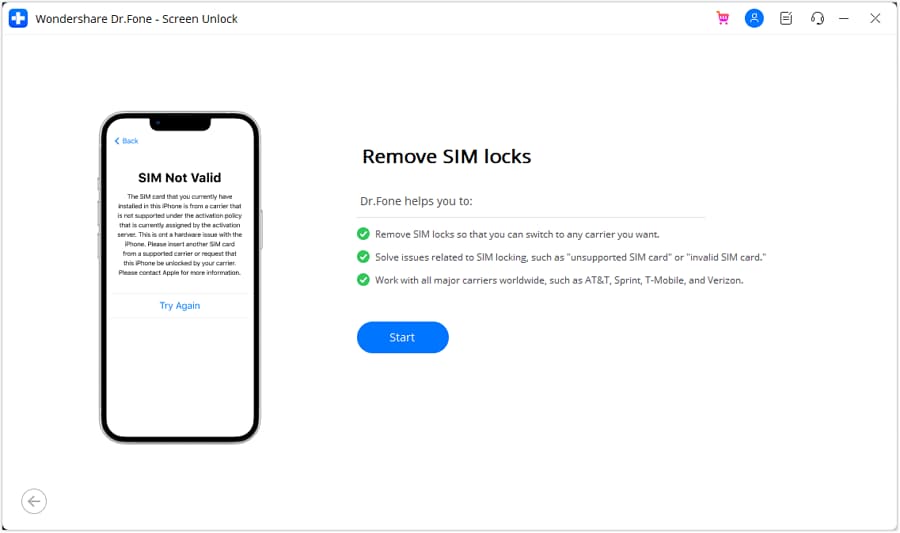
- Step 4: The platform will recognize your device and display all its details on the next screen. Continue the unlocking process by clicking the Unlock Now button.

- Step 5: Because this technique requires you to jailbreak your iOS device, you will be prompted to do so first. Click on Jailbreak Guide if you wish to follow a guide. If you want to follow a video guide instead, click on Watch Video.
- Step 6: After that, the screen will prompt you to conduct a series of actions, beginning with removing the SIM card from the iDevice. Continue to Settings, then WLAN, to access the Apple iPhone 13 Pro Max device’s network settings. Locate the Wi-Fi networks you have joined and select Forget This Network. Remove all linked networks from My Networks and disable Wi-Fi. After that, re-insert your SIM card and tap Continue.
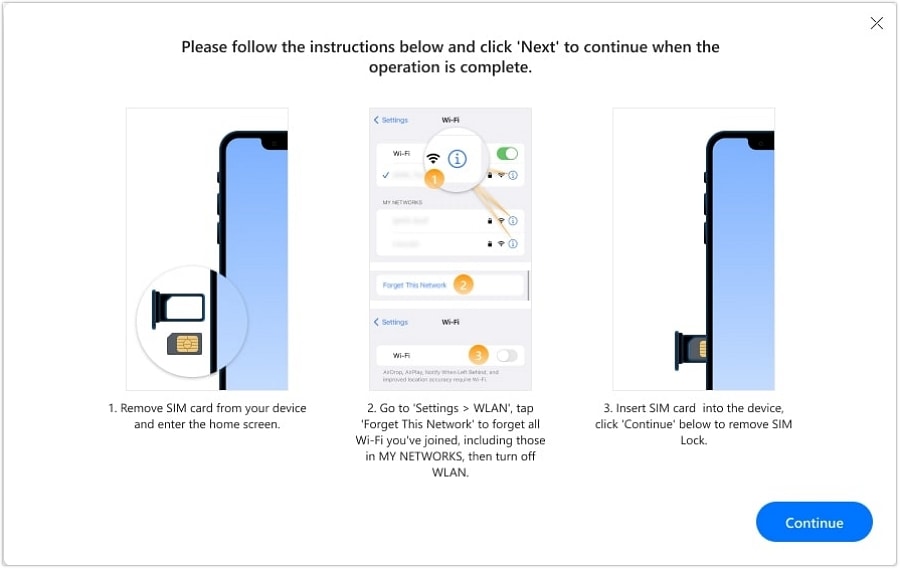
- Step 7: The next screen will display a prompt box showing the unlocking process’s status. After a short while, the window will display the completion notification, and you must click Done to end the process.
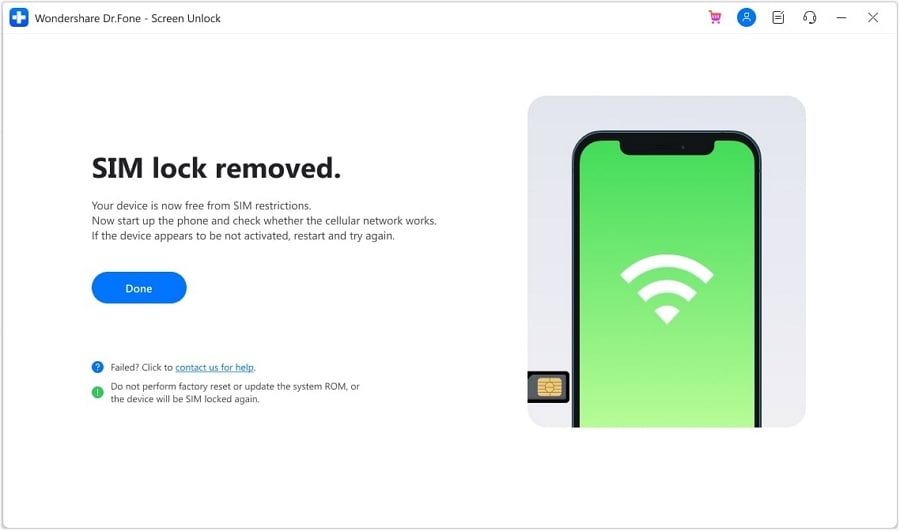
Conclusion
In a world where staying connected is vital, understanding and fixing iPhone blacklist issues is crucial. You’ve learned that a blacklisted iPhone can mean no calls, texts, or internet – a frustrating experience. But fear not because you have free iPhone blacklist removal options at your disposal. And remember, prevention is the key. By checking an iPhone’s history before purchase and keeping your device secure, you can avoid blacklist troubles altogether.
Lastly, trust Dr.Fone iPhone SIM Unlocker to rescue you when your SIM card acts up. It’s your go-to solution for SIM-related woes, ensuring you stay connected effortlessly.
How To Change Country on App Store for Apple iPhone 13 Pro Max With 7 Methods
Changing your App Store country can give you access to apps that are not available in your region. Whether getting region-specific apps, accessing exclusive content, or switching to a country with better app offerings, it’s a valuable capability.
The article below guides you through seven methods on how to change the country of your App Store.Following the guide ensures access to a world of apps and content tailored to your preferences. Keep reading the page below to achieve this.
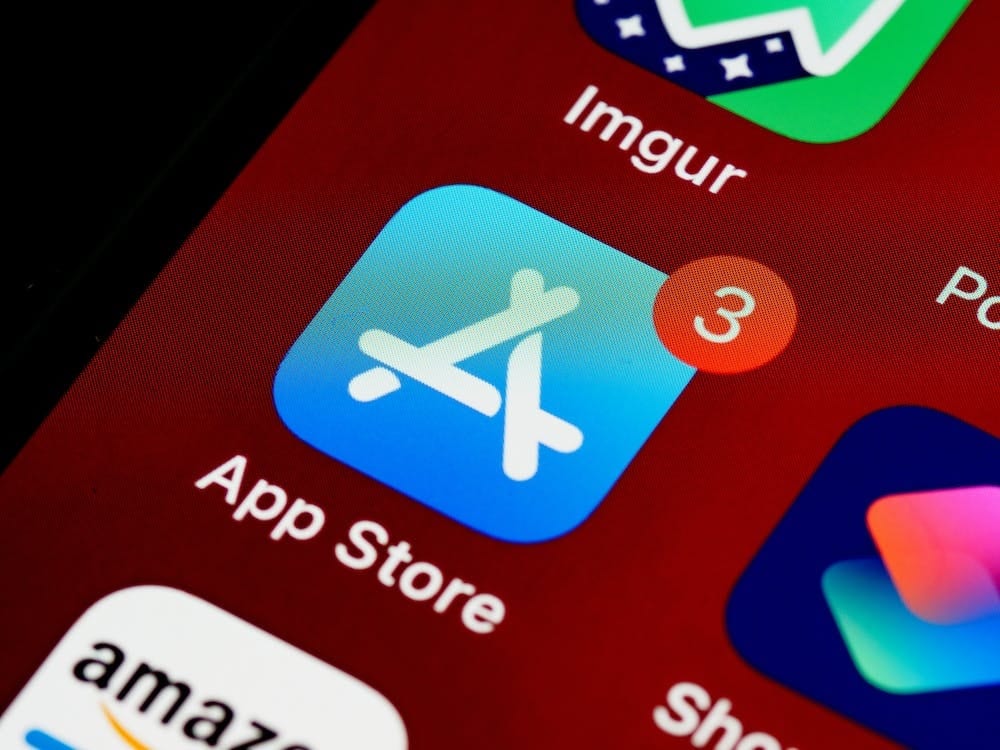
Part 1. Pros and Cons of Changing Your App Store Country
Changing your App Store country on your Apple iPhone 13 Pro Max can offer various benefits, but it also comes with certain drawbacks. It’s necessary to consider the pros and cons before making this decision.
Pros
- **Access to Region-Specific Apps.**Different countries have unique apps tailored to their markets. By changing your App Store country, you can access apps that might not be available in your current region. For example, some popular Chinese and Japanese apps are unavailable in the US App Store. If you want to use these apps, you will need to change your App Store country.
- **Getting App Updates.**Sometimes, apps receive updates and features in certain regions before others. Changing your App Store country can give you early access to these updates, improving your app experience. For example, a gaming app might first release new levels or features in select countries.
- **Access Exclusive Content.**Some apps and content are exclusive to certain countries. By switching your App Store country, you can enjoy movies, music, or TV shows unavailable in your current region. For instance, certain Netflix shows are restricted to specific countries due to licensing agreements.
Cons
- **Loss of Access to Purchases.**If you’ve made purchases in your current App Store country, changing it can result in losing access to those purchases. The loss includes paid apps, in-app purchases, and subscriptions. For example, if you switch from the US to the UK store, you may lose access to US-specific subscriptions.
- **Offload Apps.**When you change your App Store country, your device may prompt you to offload apps that are not available in your new region. This can be inconvenient if you rely on specific apps for daily use. For instance, a banking app may be region-specific and unavailable in your new country.
- **Family Sharing Issues.**If you’re part of a Family Sharing group, changing your App Store country can affect the access and sharing of purchased apps and subscriptions. Family members may lose access to content tied to your previous country. For example, if you switch from the UK to the US store, your family members might no longer have access to UK-specific content.
Part 2. Different Methods to Change Your App Store Country
Changing your App Store country can be done through various methods. Below are different ways to achieve that, along with step-by-step instructions for each technique.
Method 1: Changing Apple ID Region via iPhone
It is the most common and straightforward way to change your App Store country. To do this, follow these steps:
- Step 1: Open Settings on your Apple iPhone 13 Pro Max and tap your Apple ID at the top.
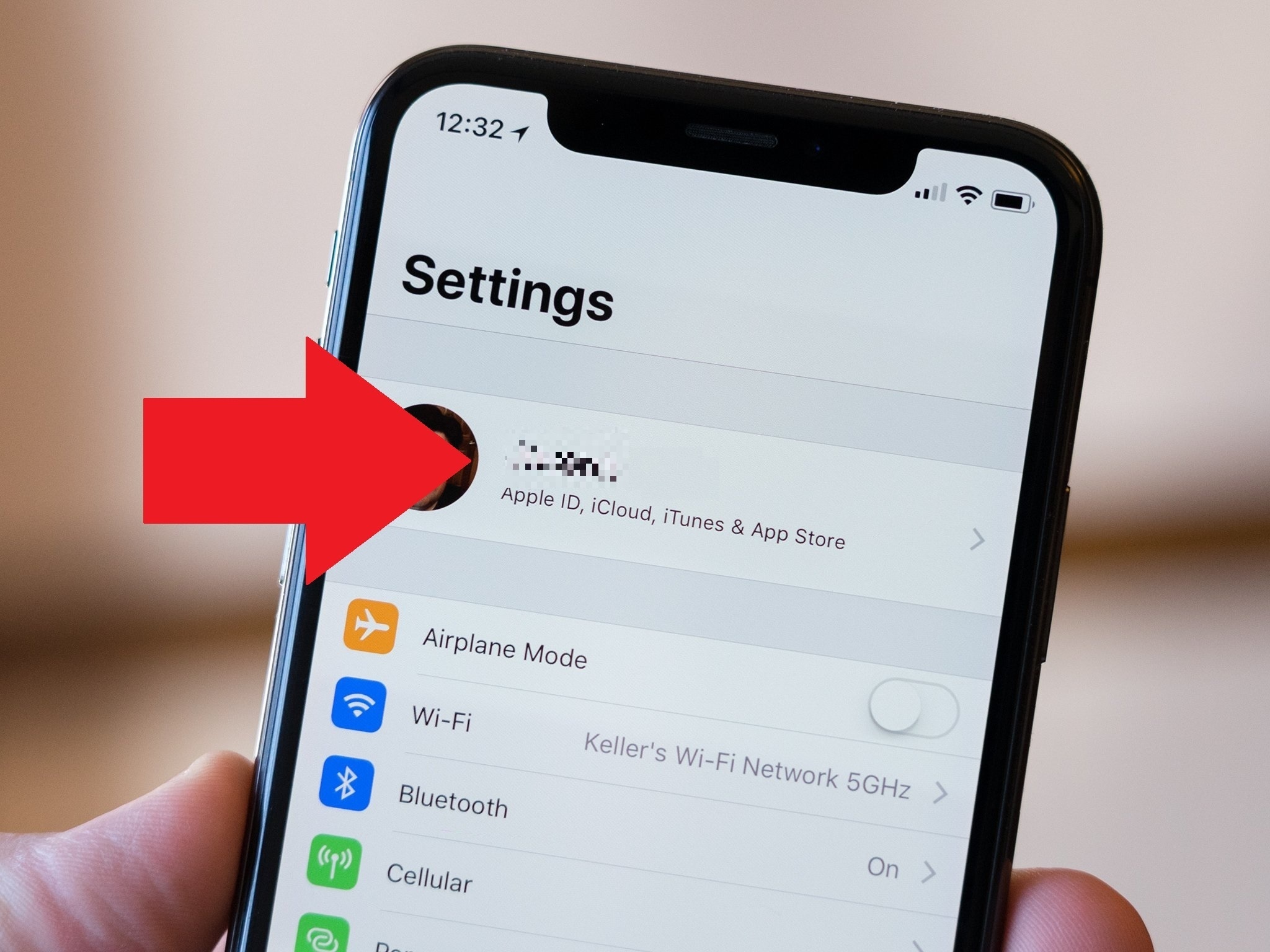
- Step 2: Tap on Media & Purchases > View Account. Sign in with your Apple ID. Next, Tap Country/Region > Change Country or Region and choose your desired country. Follow the on-screen prompts.
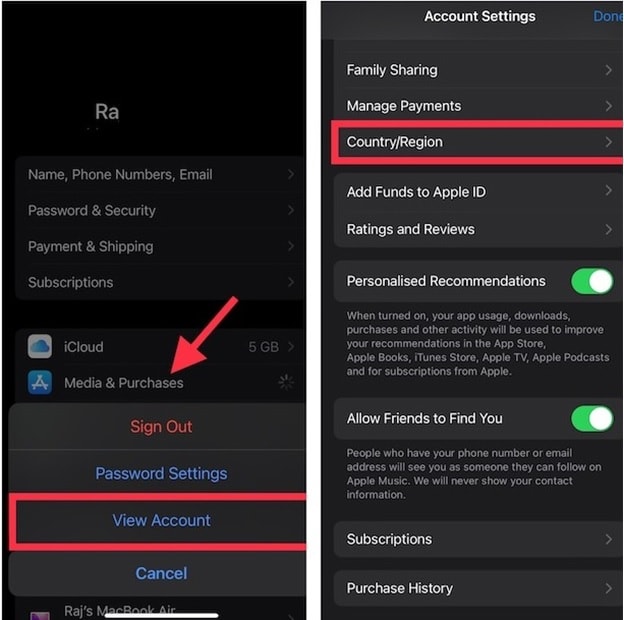
Method 2: Changing Apple ID Region via Mac/Windows
To change your Apple ID region via Mac/Windows, follow these steps:
- Step 1: Open iTunes (on Windows) or Music (on Mac). Sign in with your Apple ID.
- Step 2: Go to Account > View My Account. Under Apple ID Summary, click Change Country or Region. Click your desired country and follow the instructions.
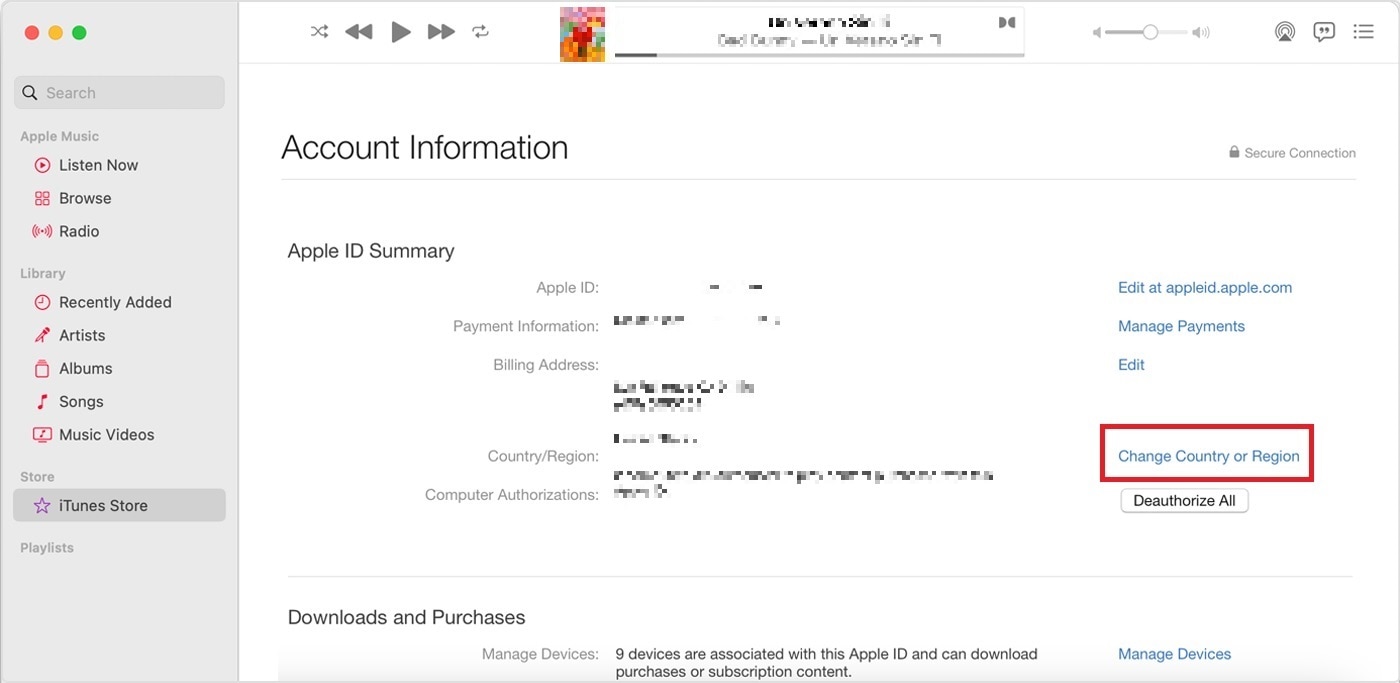
Method 3: Changing Apple ID Region via Web
The steps below are to change your Apple ID region via the web.
- Step 1: Open a web browser on your desktop or mobile device. Next, go to appleid.apple.com. Sign in with your Apple ID.
- Step 2: Under Personal Information, click the Country/Region button. Next, click the Change country or region and choose your preferred country.
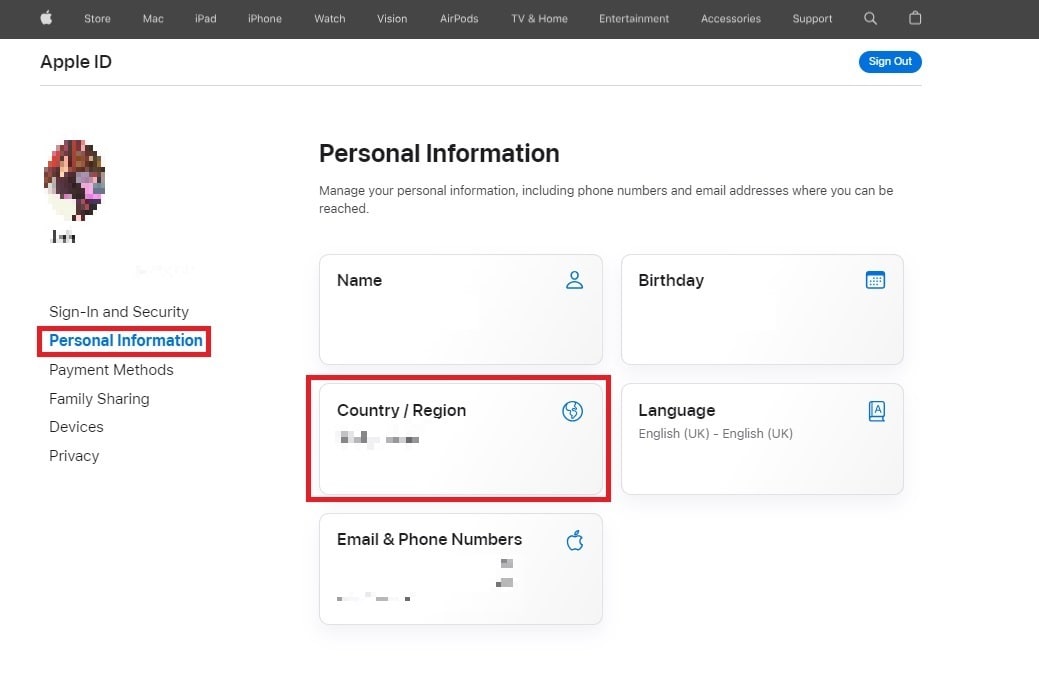
Method 4: Leaving a Family-Sharing Group
If you’re part of a family sharing group, you need to leave the group before you can change your App Store country. To leave a family sharing group and change your app store country, follow the steps below.
- Step 1: Open the Settings app on your Apple iPhone 13 Pro Max and tap Family.
- Step 2: Tap your name and tap Stop Using Family Sharing. Once you have left the family sharing group, you can change your App Store country by following the aforementioned manners.

Method 5: Cancel All Subscriptions
If you have any subscriptions, you must cancel them before changing your App Store country. Here are the steps below.
- Step 1: Open Settings on your Apple iPhone 13 Pro Max. Next, tap your name at the top of the screen.
- Step 2: Tap Subscriptions > Cancel Subscription. Once you cancel all of your subscriptions, you can change your App Store country.
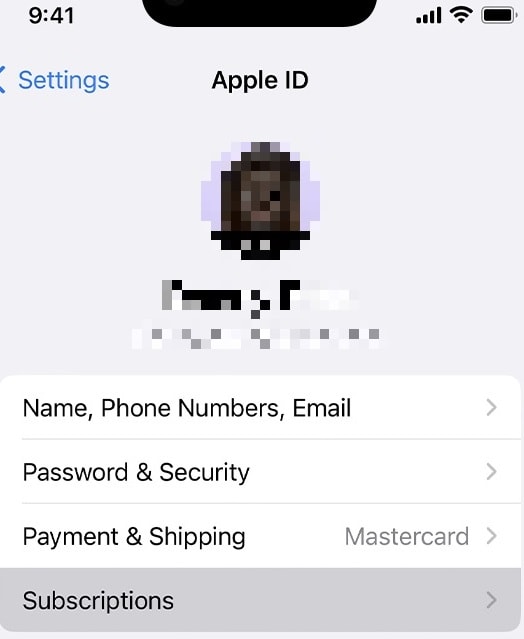
Method 6: Using a VPN
You can also use a VPN to change your App Store country. However, this method is not recommended, as it can be unreliable and may result in your account being banned. Here are the steps below.
- Step 1: Install a VPN app from the App Store.
- Step 2: Connect to a server in your desired country. Open the App Store and see content from the connected country.
Method 7: Creating a New Apple ID
Finally, you can create a new Apple ID account with the country you want your App Store country to be. Here are the steps below.
- Step 1: Sign out of your current Apple ID in Settings.
- Step 2: Create a new Apple ID with your desired country as the region.
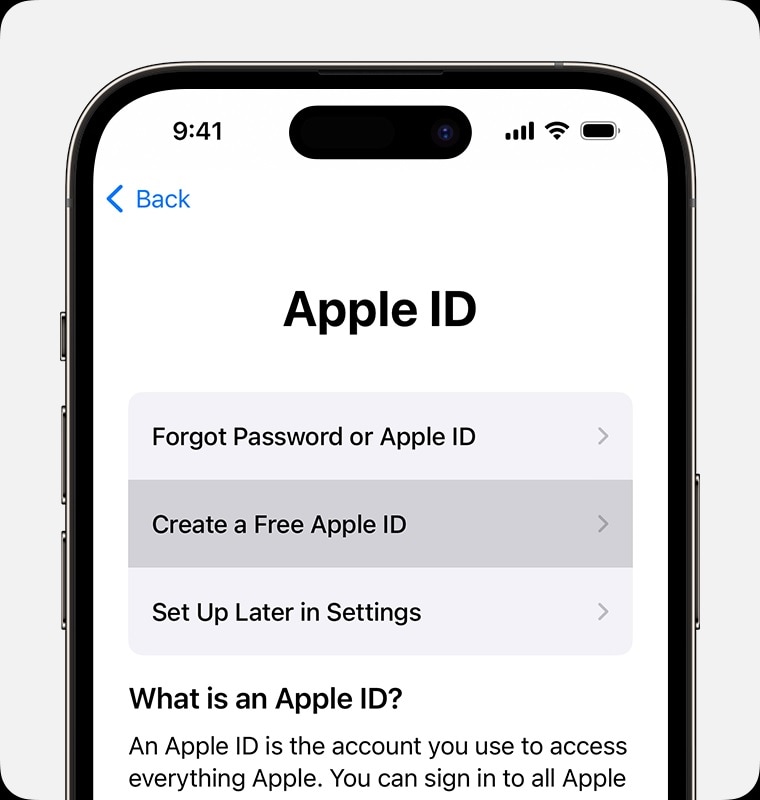
Sometimes, changing your App Store country can lead to issues. It can lock you out of your Apple ID, or you’re forgetting your password. During these events, it can restrict your App Store access. In such cases, a tool like Dr.Fone - Screen Unlock (iOS) can come to the rescue.
Part 3. Changing Countries Not Going Your Way? Use Wondershare Dr.Fone – Screen Unlock
Dr.Fone - Screen Unlock (iOS) helps you regain access to your Apple ID and fix any login-related problems. It ensures that you can continue enjoying your App Store without any hindrance. It’s a safe and reliable software tool that is used by millions of people to unlock their devices. It is also easy to use, even if you are not tech-savvy.

Key Features
Dr.Fone - Screen Unlock (iOS) is a powerful tool that can help you to:
- **Unlock iOS Device Without Passcode.**Regain access to your locked iPhone or iPad without needing the passcode.
- **Remove All Lock Screen Types.**Versatile unlock support for 4-digit/6-digit passcodes, Touch ID, and Face ID lock screens.
- **Unlock Apple ID Without Password.**Effortlessly unlock your Apple ID without requiring the password, simplifying access.
How To Unlock Your Apple iPhone 13 Pro Max in Seconds
Dr.Fone’s Screen Unlock tool offers a streamlined solution to get you back into your device within seconds. Here’s a simple guide on how to do it.
- Step 1: Download Dr.Fone - Screen Unlock (iOS) on your computer and install it. Next, launch the app.
- Step 2: Connect your locked Apple iPhone 13 Pro Max to your computer using a compatible USB cable. Afterward, click Start on the program. Follow the on-screen prompts on Dr.Fone. It will tell you to boot differently into DFU mode. Once your device enters DFU mode, Dr.Fone will present device details, including phone generation, iOS version, and more.
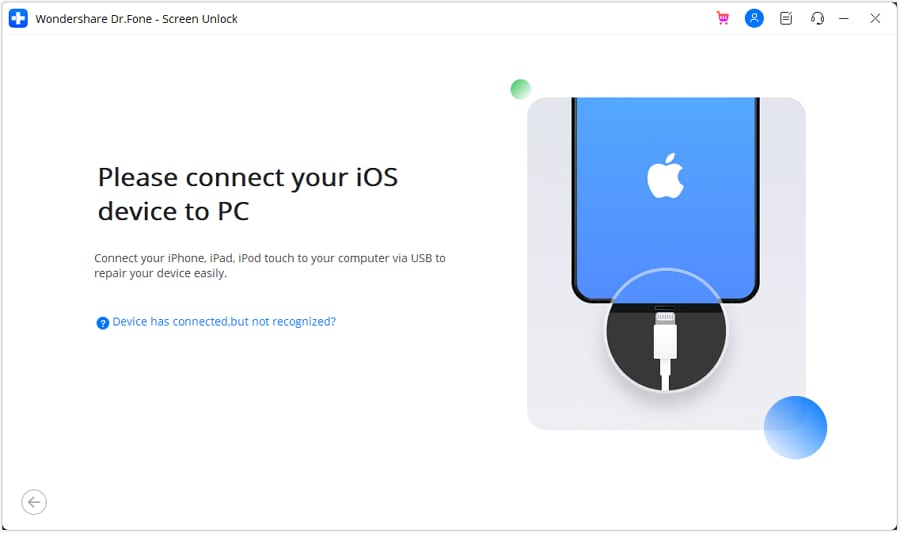
- Step 3: Dr.Fone will download the necessary firmware for your device. Follow the on-screen instructions to finish the unlocking process. Once done, Dr.Fone will remove the activation lock from your device.
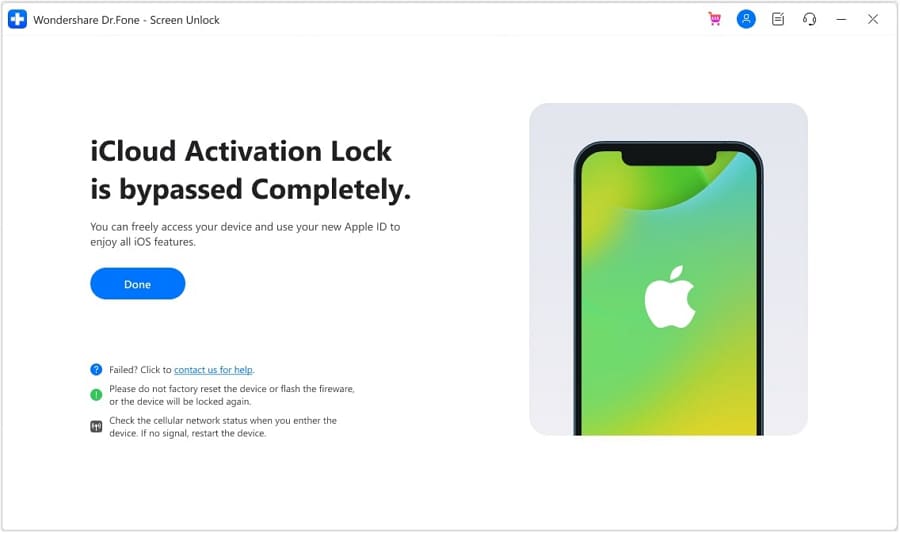
Conclusion
Changing your App Store country can open doors to region-specific apps, exclusive content, and timely updates. However, it’s important to consider the potential drawbacks, such as losing previous purchases.
When changing the App Store country on your Apple iPhone 13 Pro Max, it’s important to consider Apple ID access issues. You never know when you will get locked out or suddenly forget your password. Wondershare Dr.Fone - Screen Unlock (iOS) offers a reliable solution during these instances. The tool ensures uninterrupted access to your App Store and Apple ID account, making it a valuable resource for managing your digital experience seamlessly.
Also read:
- [Updated] Essential Tips for Operating EZ Grabber
- 2024 Approved Free Aesthetic Essentials for YouTube Artistry
- 3 Easy Ways to Factory Reset a Locked Apple iPhone 15 Pro Without iTunes | Dr.fone
- A Comprehensive Guide to Apple iPhone 13 Pro Max Blacklist Removal Tips and Tools | Dr.fone
- How Can Xiaomi Redmi Note 12 Pro+ 5GMirror Share to PC? | Dr.fone
- How Many Attempts To Unlock Apple iPhone 15 Pro Max | Dr.fone
- How to Fix Life360 Shows Wrong Location On OnePlus Nord N30 SE? | Dr.fone
- How to Permanently Resolve the Recurring PC Crashes in 'Dread Hunger'
- In 2024, 3 Ways to Unlock iPhone 14 Plus without Passcode or Face ID | Dr.fone
- In 2024, A Look at Huawei P10 Innovation in Smartphone Technology
- In 2024, Can You Unlock iPhone 15 Plus After Forgetting the Passcode? | Dr.fone
- In 2024, How to Survive and Thrive on the Streak Frontier
- Is Your Apple iPhone SE in Security Lockout? Proper Ways To Unlock | Dr.fone
- The Blueprint for Successful Windows 11 Post-Windows 10 Transition
- Unlocking iPhone 13 Pro Passcode without a Computer | Dr.fone
- Title: Complete Fixes To Solve Apple iPhone 13 Pro Max Randomly Asking for Apple ID Password | Dr.fone
- Author: Amelia
- Created at : 2024-12-10 17:15:39
- Updated at : 2024-12-12 16:16:12
- Link: https://iphone-unlock.techidaily.com/complete-fixes-to-solve-apple-iphone-13-pro-max-randomly-asking-for-apple-id-password-drfone-by-drfone-ios/
- License: This work is licensed under CC BY-NC-SA 4.0.